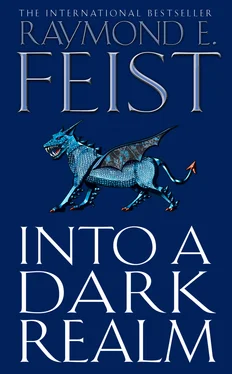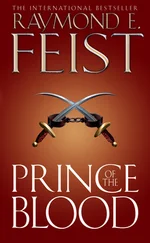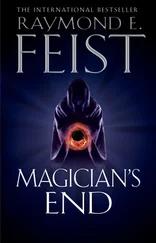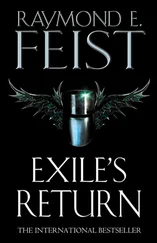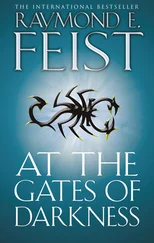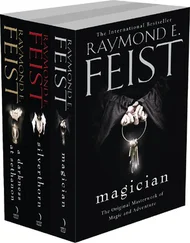1 ...6 7 8 10 11 12 ...18 The small purse of coins he carried made him a wealthy man in this land. He had travelled the roads of the Eastlands before, on foot and by wagon, and had seen the conditions lingering after the great war of the Emerald Queen, a land still struggling to recover even thirty years after the war. Coins of copper were rare, silver almost never seen, and even a single gold coin was worth a man’s life. Kaspar had enough gold on him to hire a tiny army and set himself up as a local noble.
He left the hut and considered what to do next. He had ridden straight through the village of Heslagnam as he made his way to the farm, and it was on his way back to the Talnoy cave. He would reach it after sundown – it had taken them two days and half a morning to walk there the last first time he had journeyed there from the farm – and while the inn was nothing worth noting, it was serviceable, and he had slept in far worse over the last three years.
He pushed his horse and arrived at the village of Heslagnam shortly after darkness had fallen. The ramshackle wooden inn was as he remembered it, though it looked as if it might have had a new coat of whitewash; in the dark it was difficult to tell.
When no one appeared as he rode into the stabling yard, he un-tacked his horse and rubbed it down. By the time he was finished, he was tired, irritated and in sore need of what passed for a drink in this part of the world.
Kaspar walked around to the front door of the inn, and pushed it open. The inn was unoccupied save for two villagers who sat at a table opposite the fireplace and the owner of the inn, a thick-necked man by the name of Sagrin, who stood behind the bar. Kaspar walked up to the bull-necked man who regarded him closely.
Sagrin said, ‘I don’t forget faces, even if I can’t recall a name, and I’ve seen you before.’
‘Kaspar,’ answered the former duke, removing his gloves. ‘I’ve got a horse out the back. Where’s your lackey?’
‘Don’t have one,’ answered Sagrin. ‘No boys in town. All dragged off to serve in the war.’
‘What war?’
‘Who knows? There’s always a war, isn’t there?’ He hiked his thumb over his shoulder, in the general direction of the stabling yard. ‘You can shelter your horse for free, seeing as I’ve got no one to care for it, but you’ll have to buy your own feed at Kelpita’s store across the way in the morning.’
‘I’ve oats in my pack. I’ll care for the horse before I turn in. What have you to drink?’
‘Ale and some wine. If you know wine, take the ale,’ said the innkeeper.
‘Ale, then.’
The ale was produced and Sagrin squinted a bit as he eyed Kaspar. ‘You were here, what? Two years back?’
‘Closer to three.’
‘Can’t quite place it …’
‘If you sit on the floor and look up at me, you might remember,’ said Kaspar. He took a drink. The ale was as he remembered it, thin and without much to recommend it, but it was cool and wet.
‘Ah,’ said Sagrin. ‘You’re the bloke who came in with Jojanna and her kid. Dressed a fair bit better these days.’
‘Right,’ said Kaspar. ‘Are they around?’
Sagrin shrugged. ‘Haven’t seen Jojanna for over a year.’ He leaned forward. ‘The boy run off and she was nearly frantic and went looking for him, I guess. Sold off her cattle and mule to Kelpita, then found a trader heading south – said he’d take her on for a fee.’ Sagrin shrugged, but his tone was regretful. ‘She’s probably buried under some rocks a day or two south of here.’
‘Jorgen ran off?’ asked Kaspar. He knew Jojanna and her son well enough to know that the boy was devoted to his mother, and he couldn’t imagine any reason why Jorgen would run away from home.
‘Some crew came through and word got back to the farm that the boy’s dad was serving with a company of soldiers out of Higara – seems Bandamin got himself impressed by a company of … well, they’d be slavers no matter what they called themselves, but as they were selling those who were captured into the army of Muboya, they called themselves “recruiters”.’
Kaspar remembered a relatively pleasant supper with a general of a brigade who was cousin to the Raj of Muboya. If Kaspar could find him he could … what? Arrange to have him discharged?
‘How goes that war?’ asked Kaspar.
‘Last I heard Muboya had forced Sasbataba to surrender, and was now battling some bandit lord named Okanala for control of the next bit of land he wants.
‘I’ll give the boy Raj credit though: after his army leaves, the lands left behind are almost as quiet as they were before the Emerald Queen’s war. Wish he’d send some of his lads up this way to calm things down between here and the Hotlands.’ Seeing Kaspar’s mug was empty, Sagrin said, ‘Another?’
Kaspar pushed himself away from the bar. ‘In a while. First let me feed my horse and make sure there’s adequate water.’
‘Staying?’
Kaspar nodded. ‘I’ll want a room.’
‘Pick any one you like,’ said Sagrin. ‘I’ve got lamb on the spit and the bread was baked yesterday.’
‘That’ll be fine,’ said Kaspar. He left the common room.
Outside the night air was cool; it was winter in this land, but he was far enough north and close enough to the Hotlands that it never got truly cold. He went to the stable and got a bucket, filled it at the well, and made sure the trough was full. He put a nose-bag on his horse and took some time to inspect the animal. He had ridden it hard and he wanted to make sure the gelding was sound. He saw an old currying brush sitting on the shelf next to some worthless old tack, and he picked it up and started brushing the horse’s coat.
As he hurried, Kaspar became lost in thought. Part of him had wanted to return here, to build a new personal empire; but these days the stirrings of ambitions were muted in his heart. But they were never gone entirely. Whatever effect the influences of the mad sorcerer Leso Varen had been on Kaspar, the former ruler of Olasko’s basic nature was still ambitious.
The men who were bringing order out of chaos on this continent were men of vision as well as desire. Power for its own sake was the height of greed; power for the benefit of others had a nobler quality he had only just begun to appreciate as he observed men like Pug, Magnus and Nakor, men who could do amazing things, yet only sought to make the world a safer place for everyone.
He shook his head at the thought, realizing that he had no legal or ethical foundation for building an empire here; he would just be another self-aggrandizing bandit lord carving out his own kingdom.
He sighed as he put away the currying brush. Better to find General Alenburga and enlist in the Raj’s service. Kaspar had no doubt he would quickly win promotion and have his own army to command. But could he ever take service in another man’s army?
He stopped, and started to laugh. What was he doing now? He was serving the Conclave, despite the fact he had never taken a formal oath of service with any of them. Since bringing Pug and his companions word of the Talnoy and the threat Kalkin had shown him of the Dasati homeworld, Kaspar had been running errands and carrying out missions for the Conclave.
Still chuckling as he reached the door to the inn, Kaspar decided that he was serving this land, as well as the rest of the world, and his days as a ruling lord were over. As he pushed open the door he thought: at least life was interesting.
Ten days later, Kaspar walked his horse through the crowded streets of Higara. The town had changed in the last three years; everywhere he saw the signs of prosperity. New construction was turning this town into a small city. When he had last passed though Higara, it had been a staging area for the Raj of Muboya’s army as they readied an offensive southward. Now the only men in uniform to be seen were the town’s constables. Kaspar noted they wore colours that resembled the regular army’s, a clear indication that Higara was now firmly part of Muboya, no matter its previous allegiances.
Читать дальше
